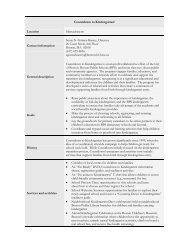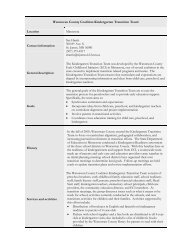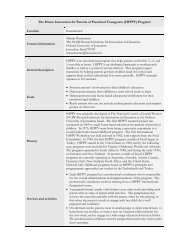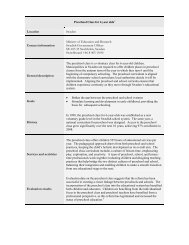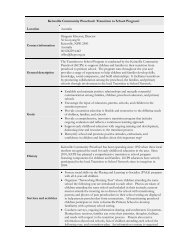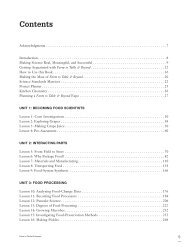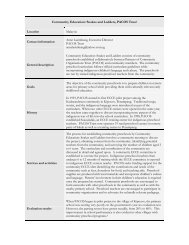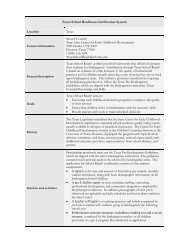Proceedings of the Fourth Annual Teachers College Educational ...
Proceedings of the Fourth Annual Teachers College Educational ...
Proceedings of the Fourth Annual Teachers College Educational ...
Create successful ePaper yourself
Turn your PDF publications into a flip-book with our unique Google optimized e-Paper software.
Implications<br />
Our work with CI extends <strong>the</strong> argument that built-in science scaffolds, such as prompts and visualizations,<br />
may need to be integrated more seamlessly within multiple contexts. For example, how can technology<br />
support learners to ask informed questions on <strong>the</strong>ir everyday observations? We argue from our data that<br />
flexibility is needed. These sessions allowed us conceptualize how to think about social community,<br />
mobility, usability, and narratives as ways that are already familiar. We call for <strong>the</strong> development <strong>of</strong><br />
technology that not only enables learners to access, share, and extend <strong>the</strong>ir life-relevant scientific<br />
experiences across <strong>the</strong> contexts <strong>of</strong> <strong>the</strong>ir lives, but also for technology that integrates to how learners<br />
already naturally interact, perceive, and interpret everyday phenomena (Clegg et al., 2012).<br />
References<br />
American Association for <strong>the</strong> Advancement <strong>of</strong> Science, F. J., Ru<strong>the</strong>rford, F., & Ahlgren, A. (1990).<br />
Science for all Americans. Oxford University Press.<br />
Atwater, M. M. (1996). Social constructivism: Infusion into <strong>the</strong> multicultural science education<br />
research agenda. Journal <strong>of</strong> Research in Science Teaching. 33(8), 821-837.<br />
Chinn, C. A., & Malhotra, B. A. (2002). Epistemologically au<strong>the</strong>ntic inquiry in schools: A <strong>the</strong>oretical<br />
framework for evaluating inquiry tasks. Science Education, 86, 175–219.<br />
Clegg, T.L., Bonsignore, E., Yip, J.C., Gelderblom, H., Kuhn, A., Valenstein, T. & Druin, A. (2012).<br />
Technology for promoting scientific practice and personal meaning in life- relevant learning. In<br />
<strong>Proceedings</strong> <strong>of</strong> <strong>the</strong> 11th International Conference on Interaction Design and Children (IDC). Bremen,<br />
Germany.<br />
Clegg, T., Gardner, C. & Kolodner, J. (2010). Playing with food: Turning play into scientifically<br />
meaningful experiences. In <strong>Proceedings</strong> <strong>of</strong> <strong>the</strong> Ninth International Conference <strong>of</strong> <strong>the</strong> Learning<br />
Sciences (ICLS) (Vol. 1, pp. 1135-1142). Mahwah, NJ: Erlbaum<br />
Druin, A., Bederson, B., Hourcade, J. P., Sherman, L., Revelle, G., Platner, M. & Weng, S. (2001).<br />
Designing a digital library for young children: An intergenerational partnership. In Joint Conference on<br />
Digital Libraries (JCDL 2001), 398-405.<br />
Strauss, A. L., & Corbin, J. (2007). Basics <strong>of</strong> qualitative research: Techniques and procedures for<br />
developing grounded <strong>the</strong>ory, 3rd ed. SAGE Publications.<br />
Yip, J.C., Clegg, T.L., Bonsignore, E., Gelderblom, H., Lewites, B., Guha, M.L., & Druin, A.<br />
(2012). Kitchen Chemistry: Supporting learners’ decisions in science. In <strong>Proceedings</strong> <strong>of</strong> <strong>the</strong><br />
Tenth International Conference <strong>of</strong> <strong>the</strong> Learning Sciences (ICLS). Sydney, Australia.<br />
84



